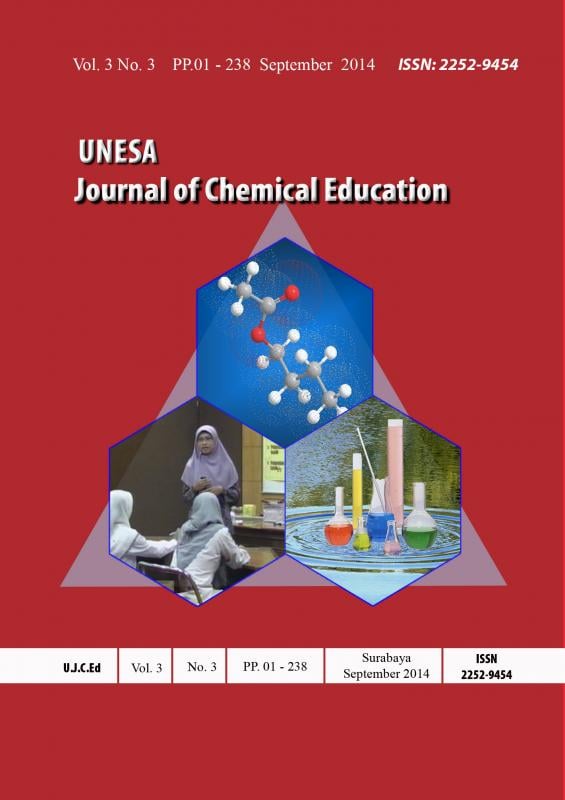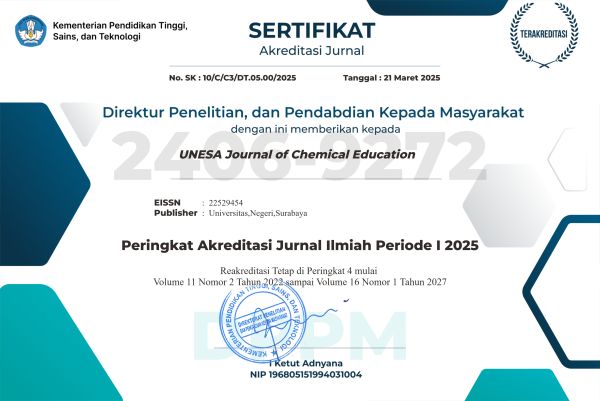DOI:
https://doi.org/10.26740/ujced.v3n3.p%25pAbstract
Tujuan penelitian ini adalah memetakan tipe gaya belajar siswa yang mengalami miskonsepsi resisten. Jenis penelitian ini adalah penelitian kuantitatif menggunakan ex post facto. Sasaran penelitian ini adalah siswa yang mengalami miskonsepsi resisten pada konsep kimia dan diidentifikasi konsepsinya dengan metode CRI dan three tier. Identifikasi gaya belajar siswa menggunakan instrumen tes gaya belajar siswa yang diadopsi dari Felder (1993). Analisis gaya belajar siswa menggunakan skala Felder. Pemetaan gaya belajar dilakukan untuk mendeskripsikan gaya belajar siswa yang mengalami miskonsepsi resisten. Hasil analisis menunjukkan bahwa gaya belajar sensing-intuitive seimbang mendominasi pada dimensi persepsi, gaya belajar visual-verbal seimbang mendominasi pada dimensi input, gaya belajar active-reflective seimbang mendominasi pada dimensi pemrosesan, dan gaya belajar sequential-global seimbang mendominasi pada dimensi pemahaman.
Kata Kunci: miskonsepsi resisten, gaya belajar, konsep kimia.
The aim of this research was to map the learning style of students who had misconception resistant. Type of this research was quantitative study using ex post facto. Participant’s of this research was students who had misconception resistant in chemistry concept and was identified their conception using CRI and three tier method. Student’s learning style was identificated by using an instrument adopted from Felder (1993). Student’s learning style was analyzed by using a Felder scale. Learning styles mapping used to described learning styles of students who had misconceptions resistant. The result was dominated by sensing-intuitive balanced for dimensions of perception, visual-verbal balanced for the dimensions of the input, active-reflective balanced learning style for the dimensions of processing, and sequential-global balanced for the dimensions of understanding.
Keywords: misconception resistant, learning styles, chemistry concept.
Downloads
Downloads
Published
Issue
Section
License
The license terms of the Creative Commons Attribution-NonCommercial 4.0 International (CC BY-NC 4.0) requires attribution to the original creator, permits non-commercial use, and does not allow for the application of legal or technological restrictions on others' use.
 Abstract views: 135
,
Abstract views: 135
, PDF Downloads: 168
PDF Downloads: 168













